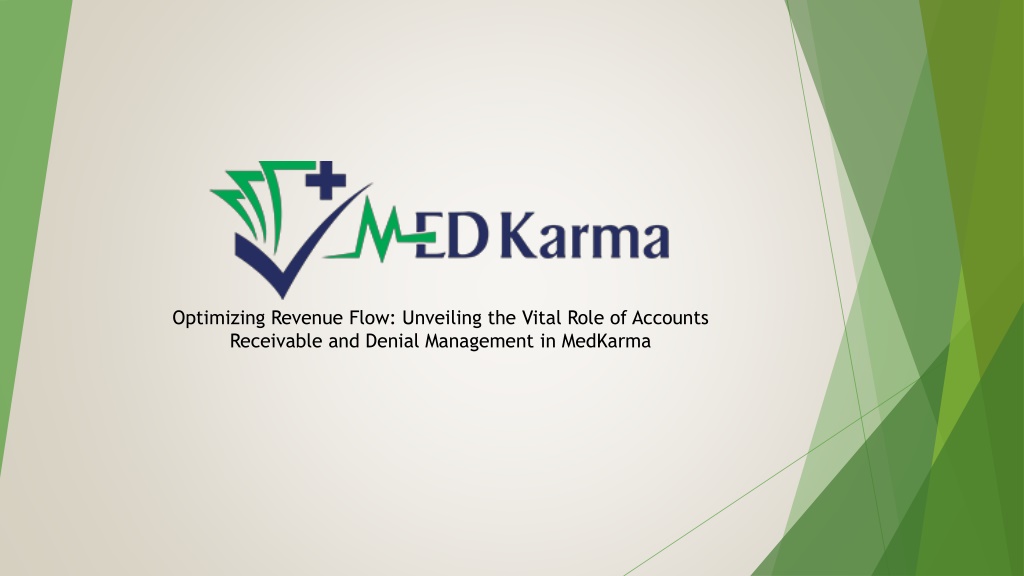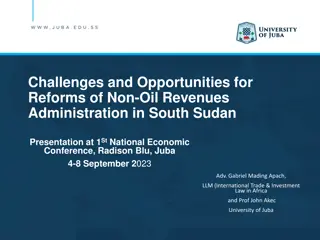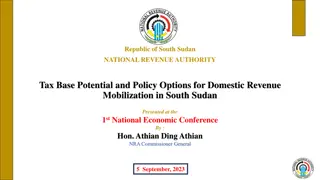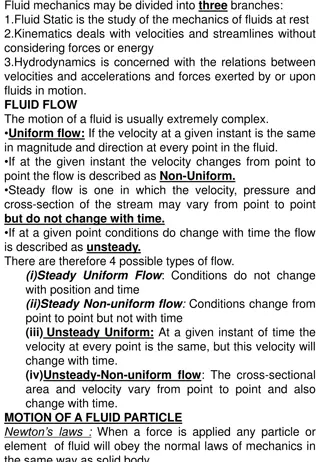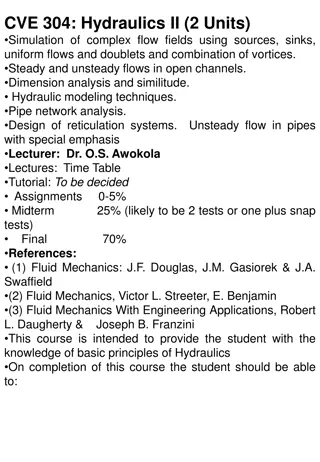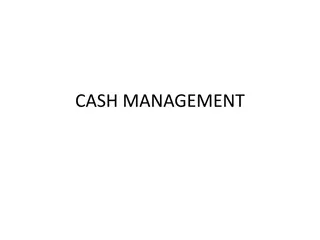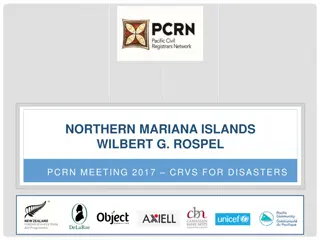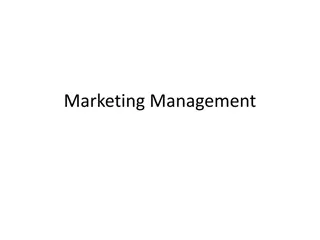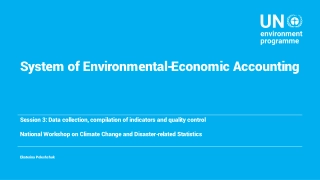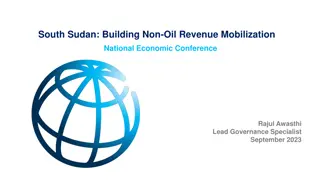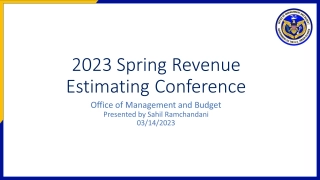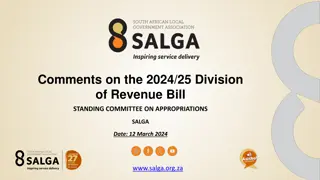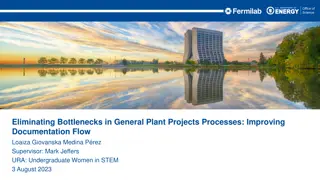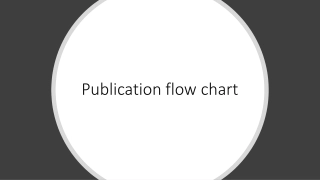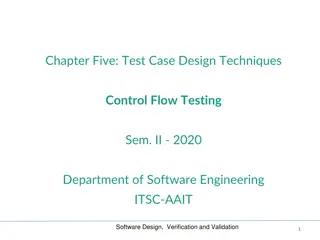Optimizing Revenue Flow, Unveiling the Vital Role of Accounts Receivable and Denial Management in MedKarma
In the dynamic landscape of healthcare, where patient care intersects with financial management, optimizing revenue flow is paramount for sustainable operations. Among the crucial components of this financial ecosystem are accounts receivable (AR) and denial management. In the case of MedKarma, a fictional healthcare provider, the efficient handling of AR and denial management holds the key to ensuring financial stability and continuity of quality care.n
Download Presentation
Please find below an Image/Link to download the presentation.
The content on the website is provided AS IS for your information and personal use only. It may not be sold, licensed, or shared on other websites without obtaining consent from the author. Download presentation by click this link. If you encounter any issues during the download, it is possible that the publisher has removed the file from their server.
Presentation Transcript
Optimizing Revenue Flow: Unveiling the Vital Role of Accounts Receivable and Denial Management in MedKarma
In the dynamic landscape of healthcare, where patient care intersects with financial management, optimizing revenue flow is paramount for sustainable operations. Among the crucial components of this financial ecosystem are accounts receivable (AR) and denial management. In the case of MedKarma, a fictional healthcare provider, the efficient handling of AR and denial management holds the key to ensuring financial stability and continuity of quality care.
Accounts receivable serve as a barometer of a healthcare organization's financial health. It represents the outstanding payments owed by patients and third-party payers for services rendered. However, managing AR effectively is often complex, requiring streamlined processes and proactive measures to mitigate risks. For MedKarma, implementing robust AR management practices involves meticulous billing, accurate coding, and timely follow-up on outstanding claims.
Central to AR management is the concept of revenue cycle management (RCM), which encompasses the entire patient care journey, from appointment scheduling to payment collection. By integrating RCM solutions tailored to MedKarma's needs, such as automated billing systems and revenue analytics tools, the organization can streamline workflows, reduce administrative burden, and accelerate revenue generation.
Furthermore, denial management plays a pivotal role in optimizing revenue flow for MedKarma. Denials occur when payers reject claims due to errors or discrepancies in documentation, coding, or eligibility criteria. Left unaddressed, denials can impede cash flow and strain financial resources. To mitigate this risk, MedKarma employs proactive denial management strategies, including claims scrubbing, pre-authorization checks, and appeals processes.
Effective denial management relies on data-driven insights to identify trends, root causes, and patterns contributing to claim denials. Through advanced analytics and reporting capabilities, MedKarma can pinpoint areas for improvement, refine coding practices, and enhance staff training to minimize denials and maximize revenue realization.
In conclusion, optimizing revenue flow through effective accounts receivable and denial management is indispensable for MedKarma's financial sustainability and operational success. By prioritizing streamlined processes, leveraging technology solutions, and fostering a culture of continuous improvement, MedKarma can navigate the complexities of healthcare revenue cycle management with confidence, ensuring optimal outcomes for both patients and the organization.
